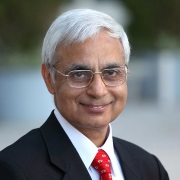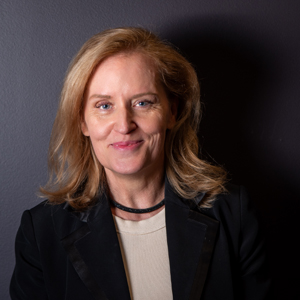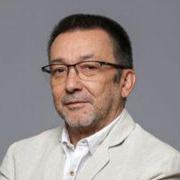The International Union of Physical and Engineering Sciences in Medicine (IUPESM) was established in 1980 and has been organizing the World Congress on Medical Physics and Biomedical Engineering every three years since 1982. International Organization for Medical Physics (IOMP) and International Federation for Medical and Biological Engineering (IFMBE) are both constituent organizations of IUPESM. The purpose of this Town Hall is to create awareness about the upcoming IUPESM World Congress on Medical Physics and Biomedical Engineering, 29 September – 4 October 2025, Adelaide, Australia.
The IUPESM’s Virtual Global Town Hall on WC2025 is scheduled for 12 pm GMT on 17 September 2024 with a duration of 60 minutes.
To check the corresponding time in your country please check this link:
https://greenwichmeantime.com/time-gadgets/time-zone-converter/
Organizer: Madan Rehani, President IUPESM
Moderator: Magdalena Stoeva, SG IUPESM
Madan Rehani

Background information about IUPESM World Congresses (WCs) on Medical Physics and Biomedical Engineering
A joint IOMP/IFMBE meeting held in 1976, during the 4th International Conference on Medical Physics (ICMP) at Ottawa, Canada created the beginning of the joint medical physics and biomedical conferences. It was agreed to hold 1979 International Conferences together in Jerusalem. Theis became the 5th International Conference on Medical Physics (ICMP) and the 12th International Conference on Medical and Biological Engineering (ICMBE). This joint event in Jerusalem was recognised as the 1st World Congress (WC) on Medical Physics and Biomedical Engineering. It was during this joint activity in Jerusalem, the Councils of both organisations discussed and agreed to the draft Statutes of the International Union for Physical and Engineering Sciences in Medicine (IUPESM). IUPESM was established in 1980 and regular joint conferences on medical physics and biomedical engineering have been held every three years. The upcoming IUPESM WC2025 in Adelaide is going to be the 16th World Congress. The talk will provide a glimpse of the history of WCs.
Short CV
Prof. Madan Rehani is Director of Global Outreach for Radiation Protection at the Massachusetts General Hospital, Harvard Medical School, Boston. He is currently President IUPESM (2022-2025) and was President of IOMP (2018- 2022). Earlier, he was a senior staff at the IAEA, Vienna, Austria, and prior to that a Professor of Medical Physics and Head of the WHO Collaborating Center on Imaging Technology and Radiation Protection in India. Dr. Rehani is an Emeritus Member, International Commission on Radiological Protection (ICRP), having been active member for 24 years. He is the author of 9 Annals of ICRP, 4 of which as Chair and lead author. He is the Senior editor British J Radiology and Assoc Editor, Eur J Medical Physics. He has more than 190 publications, has written 40 chapters in Books and edited 5 books. Besides medical physics & radiology journals, he has published papers in clinical journals e.g. JAMA Intern Med, Br Med J, Eur Heart J, Cardiovascular Imaging, Am J Gastroenterol, Circulation J, The Lancet. He has numerous awards to his credit.
Eva Bezak

IUPESM WC 2025 – A Congress You Do Not Want to Miss!
In the ever-evolving landscape of medicine and healthcare, the fusion of leading research and technological innovation is propelling us toward a future where the boundaries are beyond what any of us may have imagined just a few years ago. The 2025 IUPESM World Congress, in Adelaide, South Australia, is your gateway to the opportunities with which we are presented. The Congress theme is aligned with worldwide initiatives of equitable healthcare in a sustainable world: Bridging the Gap: Science, Technology, and Clinical Practice for a Sustainable World.
The Congress will provide a unique opportunity to make new acquaintances in an environment where they will be sharing the very latest research, technologies and thinking that stands to collectively shape the future of healthcare delivery. Showcase your work to a large audience of medical physicists, and biomedical engineers. Leverage a meeting of research and industry to network and gain valuable future partnerships. Learn about the latest innovations and cutting-edge research being conducted by world experts.
Mark your calendars and begin your preparations to join us in Adelaide 29 September – 4 October 2025.
Short CV
Prof Eva Bezak, PhD, FACPSEM, FIUPESM is Professor in Medical Radiations at the University of South Australia. Previously she was Chief Physicist at the Department of Medical Physics, Royal Adelaide Hospital. She has co-authored over 200 papers, 300 conference presentations and co-authored 3 books on medical physics and supervised over 45 PhD/MSc students. In 2020 she was appointed Professorial Lead at UniSA.
She is an active member of medical physics professional community in Australia and internationally. In 2010-2011, Prof Bezak was elected the President of the Australasian College of Physical Scientists and Engineers in Medicine (ACPSEM). Currently, she is President of the Asia-Oceania Federation of Medical Physics (AFOMP), the Vice President of The International Organization for Medical Physics (IOMP), and the administrative council member of the International Union of Physical and Engineering Scientists in Medicine. She is also a convenor (medical physics) of the upcoming IUPESM World Congress on Medical Physics and Biomedical Engineering, to be held in Adelaide, Australia from 29 Sept to 4 Oct 2025.
Ratko Magjarević

Short CV
Prof. Ratko Magjarević, the current president of the IFMBE received his Ph.D. in Electrical Engineering in 1994 from the University of Zagreb, Faculty of Electrical Engineering. After his appointment in industry at the Institute of Electrical Engineering “Koncar,“ he joined the Electronic Measurement and Biomedical Engineering Group at the University of Zagreb Faculty of Electrical Engineering and Computing. He is full professor teaching several courses in Electronic Instrumentation and Biomedical Engineering at undergraduate, graduate and at postgraduate studies.
His scientific and professional interest is in fields of electronic and biomedical instrumentation and digital health, in particular in cardiac potentials analysis and pacing, in research of new methods for drug delivery based on electropermeabilisation and recently in research of personalized intelligent mobile health systems. He is author or co-author of numerous journal and conference papers, several textbooks and book chapters. R. Magjarevic is elected for President of the International Federation for Medical and Biological Engineering (IFMBE) from 2022 to 2025.
John Damilakis

The Role of AI in Enhancing X-ray Imaging Dosimetry
The advancement of X-ray imaging techniques has increased the need for improved patient dosimetry, emphasizing better dose assessment methods and strategies to minimize radiation exposure. This presentation will examine the potential of artificial intelligence (AI) in patient dosimetry. AI, particularly through machine learning models trained on extensive personalized Monte Carlo dosimetry data, significantly improves the dosimetry process by enabling precise and rapid dose assessments. AI automates the traditionally labor-intensive task of organ segmentation from CT images, ensuring accurate organ dose estimation. This capability facilitates the seamless integration of personalized dosimetry into clinical workflows, enhancing patient safety and optimizing radiation dose management. Despite these benefits, challenges such as potential biases in training data and the need for thorough validation to ensure accuracy across diverse patient populations and imaging conditions must be addressed. Overcoming these hurdles is crucial for fully leveraging AI’s potential in clinical dosimetry.
Short CV
Prof. John Damilakis, MSc, PhD, FIOMP, FIUPESM is a professor and director of the Department of Medical Physics, School of Medicine, University of Crete and director of the Department of Medical Physics of the University Hospital of Heraklion, Crete, Greece. He holds the position of President within the IOMP and has previously held leadership roles, including President, in organizations such as the ‘European Federation of Organizations for Medical Physics’ (EFOMP), the ‘European Alliance for Medical Radiation Protection Research’ (EURAMED), and the ‘Hellenic Association of Medical Physics’.
Prof. Damilakis has shared his expertise as a Visiting Professor, delivering lectures on medical dosimetry and medical radiation protection at Boston University, USA. His body of research work encompasses a wide range of research areas, including medical dosimetry and radiation protection, and the application of artificial intelligence in medical imaging. He has played significant roles as an editor, author, or co-author in several influential books within the field. Professor Damilakis has published 266 articles listed on PubMed, accompanied by 9826 citations, and an h-index of 53 as documented on Google Scholar (June, 2024). His contributions to the field have garnered him numerous awards and recognitions for his scientific achievements.
